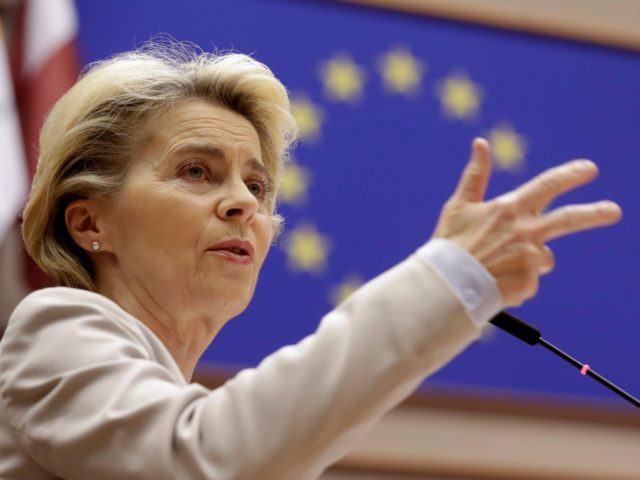Brexit deal talks are over if Britain will not give in to the European Union’s demands, Brussels’ top man is claimed to have told UK negotiators, as the clock runs down in the final weeks until Britain is expected to finally and fully leave the bloc.
While talks between the European power bloc and its erstwhile member have dragged on for years, they have been fundamentally hobbled from day one by the simple fact that both sides want outcomes so radically different; anything approaching accommodation would ultimately be a betrayal to their own interests.
Evidently exasperated at Britain refusing to yield on its own red lines, the EU’s chief negotiator Michel Barnier is reported to have told his British counterparts that if they did not accommodate his demands within two days, talks would effectively be over, reports The Guardian.
Britain Tells Europe to Show ‘Flexibility’ Amid Warnings Brexit Talks Could ‘Fall Apart’ https://t.co/648cYjzpHT
— Breitbart London (@BreitbartLondon) November 12, 2020
The paper notes the demand came during a Zoom call on Tuesday — physical talks having been cancelled until later this week due to coronavirus — and that European negotiators might hope that the demand would pile pressure on Boris Johnson to soften his stance.
The claim of Barnier’s demand comes a week after comments from Boris Johnson’s spokesman, who said it remained the opinion of British negotiators that it would be better to leave Europe fully at the end of this year with no deal, as opposed to leaving with a bad deal. The spokesman said: “The PM said he was incredibly confident that the UK will thrive with or without a free trade agreement with the EU.”
Illustrating where friction remained, the spokesman said: “Significant issues remain, particularly on the so-called level playing field and fisheries. We are working hard to find solutions which fully respect UK sovereignty, but it is far from certain that an agreement will prove possible and time is now very short.”
Ultimately, the questions over a deal boil down to how the two sides view the future. British negotiators see a so-called Canada-style relationship between the UK and the EU, where both parties trade freely but where Britain is an independent nation and free to make its own way in the world, as is typical for sovereign states. For the European Union, the post-Brexit world should be as similar to the pre-Brexit one as possible, with Britain bound to obeying certain European rules and restrictions.
‘Anti-British’ Joe Biden Interferes in Brexit Talks, Takes EU’s Side https://t.co/cBQrbApI5y
— Breitbart London (@BreitbartLondon) September 17, 2020
Of particular importance to Europe is that Britain is prevented — under threat of punishment — of “undercutting” the European Union, by changing its own laws, or seeking to become more competitive in the future. Brexiteers argue regaining this freedom underlines the whole point of the Brexit project, and without it, the nation’s departure would be a ‘Brexit in name only’.
The European Commission’s president, Ursula von der Leyen, emphasised the EU’s view that Britain needed to shift its stance on Wednesday, and again alluded to the ‘level playing field’ Brussels demands that would tie the UK to the bloc in perpetuity. She told the European Parliament: “These are decisive days for negotiations with the United Kingdom. But, frankly, I cannot tell you today if, in the end, there will be a deal… We will do all in our power to reach an agreement, we’re ready to be creative. But we are not ready to put into question the integrity of the single market, the main safeguard for European prosperity and wealth.”
Discussing the potential punishments Europe could mete out to Britain if it did decide to make its own way in future, von der Leyen continued: “We want to know what remedies are available in case one side will deviate in the future because trust is good, but law is better.”
These latest developments are not, by any means, the first time a party to the Brexit talks will have demanded the other side be more flexible, or even that they have collapsed. British negotiators told Europe to show more “flexibility” earlier this month, warning that talks could fall apart otherwise — basically mirror comments to those issued by Brussels this week.
Last month, talk was even more robust, with UK Prime Minister Boris Johnson sensationally walking away from negotiations, declaring them to have failed and remarking it was pointless for them to go on as neither side was capable or willing of accommodating the other. Regardless, negotiators were back at the table less than a week later as if nothing had happened.
Brexit Talks Back on Less than Week After Boris Told UK to Prepare for Clean Break https://t.co/9JpVUyD4jL
— Breitbart London (@BreitbartLondon) October 22, 2020

COMMENTS
Please let us know if you're having issues with commenting.